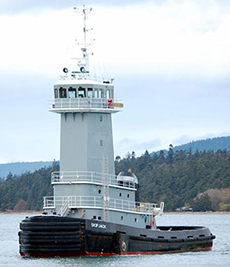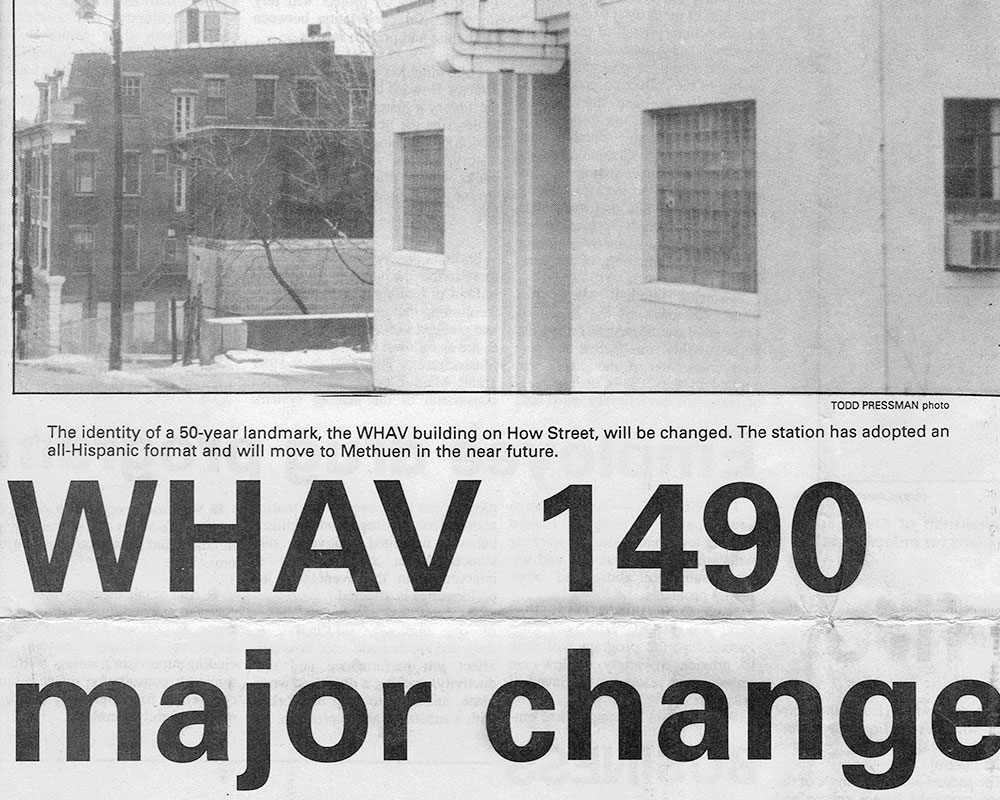It was three years ago today that WHAV began broadcasting over the FM airwaves. It was nothing less than a Herculean battle to bring WHAV back to the radio dial, but it may prove all for naught.
It is up to local residents and businesses to decide WHAV’s fate after Thanksgiving. That’s the purpose of WHAV’s current appeal for residents to become monthly supporting members and businesses to place community needs front and center. To learn more, visit https://whav.net/become-a-whav-member/.
The fight to keep WHAV a Haverhill institution effectively began March 3, 1995 when Paul F. Ryan, general manager of the then still-daily Haverhill Gazette, published an opinion saying he hoped rumors of WHAV’s imminent sale were false.
“It will be a shame if it just fades from the scene, as far as the huge majority of listeners are concerned: Let’s all hope that doesn’t happen,” said Ryan, who is today WHAV’s voice of the Hillies.
The following Monday, however, The Gazette reported, “WHAV listeners and employees awoke to a shock when they tuned into their hometown radio station.” The front-page story reported the then-48-year-old station had switched away from local programs and would soon move to Methuen.
“As of midnight, last night they were gone. It’s like getting lost,” WHAV listener Priscilla Belmer told the Haverhill Gazette that day. She went on to say she always counted on WHAV for information on school closings, emergencies, weather, news, lunch menus and local events.” Another listener, Laurel Marshall, said “They (WHAV) really provide a community service and we depend on that.”
As always, there are two sides to the story. Marc Lemay had served as WHAV’s news director before the sale of the station. He witnessed the decline of advertiser dollars and found himself virtually begging local businesses to help pay for Haverhill Hillies football broadcasts, local election coverage and the like. At a certain point the radio station’s staff became demoralized and burned out. It is safe to say history is repeating itself.
In 1995, unlike today, listeners were not asked to be part of the solution. WHAV was a commercial station then and audiences were not asked for memberships or donations. Daily newspapers, on the other hand, have always relied on the combination of advertisers and home subscribers to pay the costs.
That’s not to say listeners weren’t concerned about the demise of WHAV. A group called “The Challenge,” spearheaded by Bradford resident Gregory Caliri, opposed the sale of the station. The group told the Federal Communications Commission the Eagle-Tribune’s role in financing the purchase of WHAV “places an extreme control of the flow of news information in the hands of a few individuals acting as business partners.” Under Mayor James A. Rurak, the city also challenged the sale of the radio station. Caliri and Rurak are among WHAV’s relatively few members today.
The fight to return WHAV to Haverhill never ended. On Jan. 3, 2004, the current management of WHAV introduced WHAV.net—local news, features and music streaming audio over the internet 24-hours-a-day, seven-days-a-week. To expand the audience, Haverhill Community Television added WHAV’s sound to Channel 22, followed by Methuen, Groveland and Andover, Mass., and Atkinson, Plaistow and Sandown, N.H.
It literally took an act of Congress in 2010 to make room on the FM band for more local radio stations. Bowing to pressure from lobbyists, Congress added its own obstacle, stipulating the new stations must be nonprofits. The FCC followed in 2013 with the opening of a filing window. No one knew for sure the FCC received WHAV’s and other’s applications that fall because the federal government was shutdown. When Washington, D.C., went back to work, WHAV found it had three competitors for a new radio station license. Two of the three applicants dropped out, leaving WHAV and the Boston Archdiocese. Ultimately, the two applicants entered into a settlement agreement and both received license grants after incurring substantial re-engineering and legal costs.

The WHAV call was out at sea for a few years.
With complications par for the course, WHAV faced another obstacle—getting its call letters back from a Gulf Coast barge that had been assigned the letters randomly after the Methuen station surrendered them. Settlement of the matter required complex arrangements with barge owner Kirby Corp., the U.S. Coast Guard and the FCC.
Contrary to some perceptions, WHAV receives no taxpayer or cable television dollars. It relies on resident memberships and the handful of viable businesses that still exist in Greater Haverhill. Thanks to national big box stores, corporate chain restaurants and internet retailers, there are few businesses to pitch.
If you are a monthly WHAV member, sponsor or donor, thank you! If not, please considering joining or sponsoring WHAV. Otherwise, you may once again see a message similar to one that appeared in The Gazette June 15, 1995.
“This is the obituary for WHAV as a local radio station. Farewell old friend, you served us well. You will be missed.”


